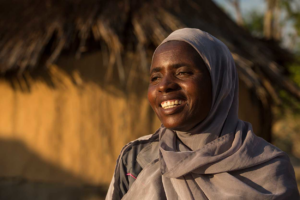Table of Contents
Women Resilience
As part of a 3 part blog series for International Women’s Day we are looking at women resilience and how women can be their own authentic version of womanhood.
Resilient woman
When we think of a resilient woman, what’s the first picture that comes to your mind? It is safe to say that most people probably think of the idealistic ‘Superwoman’ image from Amazonia, a Zena Warrior princess or some benevolent female warrior in battle or leading a nation.
The majority may agree that this is romanticism at its best; idealised for the appeal of the modern mind who are sometimes fed a stream of perfectionism and fantasy to ease the blow of conventional 9-5 living.

We live in a world that is plagued by cultural conditioning, unconscious bias and perceptions that carve our worldviews.
Plus, the pursuit for overloading, diluted online information, doesn’t really give us a ‘one size fits all’ depiction of a ‘resilient woman’.
Our ideologies and belief systems are imprinted by many external and internal factors and are also influenced by women’s, sometimes distorted, representation in the media, some positive and some more negative.
Nowadays, there is a contemporary ideal of the resilient woman. Initially formulated to understand ecological systems, the notion of resilience has come to remarkable prominence in recent years, particularly in discussions about how individuals can best cope with stress, bullying, and overwork.
Not surprisingly, resilience has also emerged, as a central term in popular culture (and in my opinion been misappropriated) in advertising, social media, lifestyle magazines and reality television, as well as in the burgeoning market of smartphone apps.

When we explore the ideal of a resilient woman, we don’t really think of the ‘average’ woman who is leading a family, holding down a job or trying to just stay afloat in life.
Thus, the conformist fallacies need to be shattered.
To me, the resilient woman is the regular female who is constantly working against personal and systematic odds, yet chooses malleability over destruction and harnesses her innate qualities of authenticity, in every aspect of her life.
Resilience meaning
Resilience stems from the seeds of darkness. It is in the muddy, dark and uncomfortable waters of adversity and turbulence that real resilience is carved, nourished and grows.
The resilience seed is sustained though recognising both internal and external (sometimes, circumstantial) hardships and coping in a variety of different ways, be they personal, professional, or social.
We really don’t know what life will throw at us. It is an ever constant, flowing stream of change.
‘Coping’, doesn’t mean engaging in survival mechanisms or overloading in self-help or self-preservation tools.
It’s means ‘adaptability’. Eventually, a woman will overcome her destitutions, but the resilience seed only germinates when she first learns how to recognise the qualities and triggers of the ‘pain’ hardships initiates.
After doing the inner-work, she now understands how these challenges affect her (mentally, physically and emotionally) and at the end of it all, she appreciates that they do not define her.
She has a beautiful core, which was there, and still is there, before it all.
The hardships are just vital ingredients to nurture her growth.
It is only in this cultivation of ‘awareness’ that you will be able to transcend the multitude of adversities in life.
You come to the powerful self-realisation, that they are detached from you.
They do not define you. Resilience to me, is when you’re self-aware enough to know that when you feel like you are breaking, you are really blossoming.
“Resilience to me, is when you’re self-aware enough to know that when you feel like you are breaking, you are really blossoming.”
Resilience isn’t a new term
Interestingly, in science, resilience is a systematic term that applies to materials that have the capacity to return to their original shape after being bent or stretched.
Women leaders for example utilise their resilience to harness and heighten their capacity to transform challenges into opportunities for the sake of their evolution, both personally and professionally.
It’s their ability to get back up, get back on track and get back into the game after introspection, which is the embodiment of resilience.
Women are conventionally defined as ‘emotional creatures’ that are self-limiting within the essence of their own ‘natural’ creation.
Even if we choose to be more emotionally expressive, it should not be deemed as a restriction nor is it off-putting.
We should not regulate our emotionalism at the direction or will of others.
I don’t think we speak enough about how females are forced to deal with a number of conflicting personal, professional and systemic challenges that are not as commonly experienced by their male counterparts.
The fact is, women are experiencing the chronic symptoms of distress far more than men – a consistent finding since 2009. The results of a survey in 2019 found females were more likely to be self-critical, to neglect their physical health, and feel overloaded or stressed in the workplace.
The difference is, a resilient woman isn’t scared to talk about it!
Science suggests that male unwillingness to talk about failures and frailty might be genetic across animal species: “Sick male animals hide because it’s threatening to show illness.” A resilient woman doesn’t hide.
She doesn’t see her ‘vulnerabilities’ as weakness. She allows herself to be emotional and hurt.
She is unapologetic, unfiltered and unafraid of telling her story.
She is not strong, nor is she weak. She is adaptable and has an appetite for life, experiencing all of its flavours.
Some good, some bad. She lives her ‘truth’.

Dr. Wagnild writes: “Even though we have no control over many events in our life – accidents, natural disasters, crime, illness, the economy, etc. – we can control how we respond to these events and we can choose to do so with resilience.”
Four characteristics of the resilient woman
We can learn a lot about resilience from the female leaders from the UN.
They work in some of the world’s most challenging contexts.
Imagine adding extreme physical conditions, threats to personal safety, natural disasters, armed conflict, large numbers of traumatised people, minimal infrastructure, and complex, multi-stakeholder relations to your list of challenges. Just to state a few.
There is a whole slice of regular women who aren’t in the back and aren’t in the front.
But who just are. Living and loving and being with normal-sized victories and losses.
Many lovely women have come to believe that since they haven’t overcome anything that society deems “exceptional,” they are not strong — or worse, that they are the opposite: weak.
Regular and resilient women see that life’s ‘threats’ are something that have to be mastered, and more importantly, something that has to be understood through:
-
Self-awareness.
You train the mind to recognise your thoughts, feelings and emotions in motion.
You, whole heartily acknowledge your struggles and do not try to instantly seek solutions, or turn it into a spring board for success.
You allow yourself to feel these intense emotions instead of resisting or running away from them.
You sit lightly with yourself and give yourself the time you deserve, leading to recognising that feeling both pain and pleasure is the natural experience of being ‘human’ and human existence.
-
Existential aloneness.
To be truly resilient, you need to be able to live with yourself. You can also call this, “being comfortable in your own skin.”
Truly resilient women need to have this ability.
You need the sense that, if necessary, you can go it alone and take a course of action that may not be popular, but which you believe in.
-
Stay balanced.
Understand that regardless of the situation it is never entirely bleak nor entirely positive.
There’s a middle ground that allows you to see all possibilities and will help to give you the optimism needed to make things better.
You reconnect with aliveness as an opening to awareness
-
Self-reliance.
Belief in yourself needs to be resourceful and realistic.
Remember the challenges in the past that you have met successfully and those that were less successfully met.
Your lived experience is valid.
You can learn from both experiences and develop problem-solving skills that help to build self-reliance.
There is no set definition, rather fluidity of sustenance
The women resilience practices solid values, oozes in compassion and empathy and leads with heart.
Above all she is authentic, and she is proud to be human, in all of its versions.
She is a leader. A mother. A sister. A wife. A grandmother. A powerhouse. She is the CEO of her own existence. An agile, adaptable and influential role model in both theory and practice.
We self-love instead of self-loath. We stand up for ourselves so we are not mistreated at work or in relationships, we are assertive without devaluing others and have a self-image that is positive without being conceited.
And when faced with challenges, women resilience show strength in their ability to minimise the impacts of distractibility, disengagement and avoid a space of self-absorption. With a resilient collective, the result is female leaders who are happy at work, tactically agile, and lead with purpose and optimism. And most importantly, they connect to the humanity that lies at the heart of everyone they meet.







